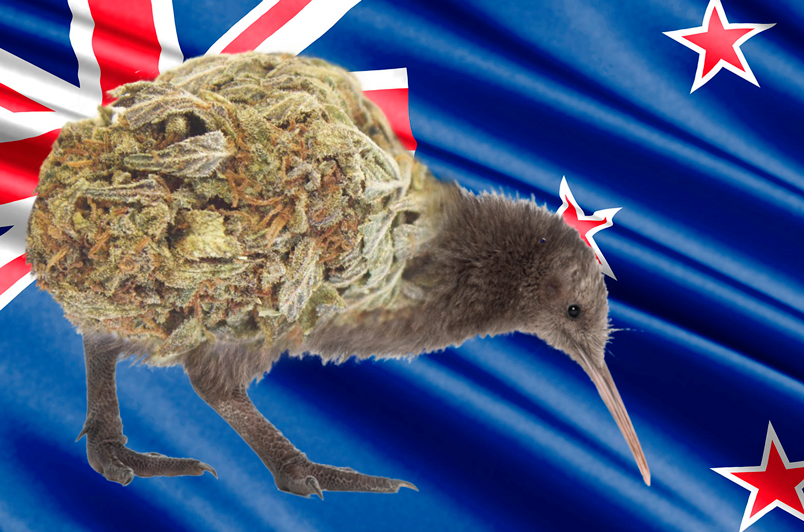Benito Díaz
A general consultation about cannabis in New Zealand took place on October 17 and its result is expected to be known preliminarily on October 30, and released on November 6. The legalisation of its selling, distribution, possession, and consumption has been posed as a question about the “Control and legalisation of cannabis” law, which will be accepted or rejected.
The country had already regulated the use of therapeutical cannabis and the farming of industrial hemp during 2018. Their status will remain the same whatever the result of the referendum.
It should be reminded that nowadays marijuana is still illegal and prosecuted in New Zealand, only allowed in the case of patients who suffer chronic pain, and that those patients need to carry a special medical prescription to obtain their medicines. Moreover, the maximum penalties for possession reach a three-month imprisonment or a 500 local dollar fine. Growing cannabis is punished with seven years of imprisonment at most.

Referendum structure
The disposition of the law involving cannabis would drastically change in case the “Yes” won. As we explained, the electorate will get a ballot in which they will have to make decisions involving marijuana and other important matters like euthanasia, all amidst the New Zealand 2020 general election.
The proposed legislation, made public by the minister of justice and spokesman for drug reform for the Green Party, Andrew Little, includes provisions for a variety of subjects. The minimum age for purchase and possession is established at 20 years of age, after considering the scientific studies that point at brain damage in consumers under 25 years of age. Little also noted the disposition of citizens to consume cannabis before 21, which would drive these people to resort to the black market to obtain it.
The amount of cannabis allowed in sale and possession is established in 14 grams per day. Homegrowing is allowed up to four plants per household and is limited to private or authorised places. Remote or online selling is banned, only physical sale would be allowed. Of course, cannabis would have special taxation, a tax directed at damage reduction (in addition to the nation’s regular taxes). The packaging would include warning messages. Mass commercialization and advertising would be banned. Also, a Cannabis regulation authority would be created.
Non self-executing
The referendum results will not follow the classic poll rules. In Spanish legislation there are several different kinds of referendums, depending on their objective, their base or their nature. In New Zealand, however, there are only two cases to consider: the referendum being binding or not binding. If binding, the results have legal validity, having been approved by the majority of the participants. However, the query in the New Zealand case its not binding, and if winnig it will have to be presented as a bill in Parliament.
The vote count will be carried out at the same time as the presidential election vote count, and the new camera will be the one to vote against or in favour of the bill.
Kiwis
The history of legalization in New Zealand is represented by a long road that started in 1996, led by the maori, Green and Labour representatives.
Different polls, asking the population about cannabis regulation, have been taking place during a long time. One of the main findings from 2017’s was that 70% of the voters want cannabis for personal use to be decriminalised or legalised. 60% were in favour of legalising (22%) it or decriminalising (38%).
The last decision will be made in the political arena, although the popular support for the measures has been shrinking in the last months. A survey made in August this year, performed by Horizon Research and sponsored by Helius Therapeutics, reveals that the percentages are now in close competition, with 49,5% in favour and 49,5% against, four weeks from the referendum. Some voices explain this tendency underscoring the change of mind of certain age groups, who were undecided and are now leaning towards prohibition.
The result depends only on the voters. The only certain thing is kiwi politicians tend to deliver on their promises more often than those of other nations that claim to be at least as advanced as New Zealand.
